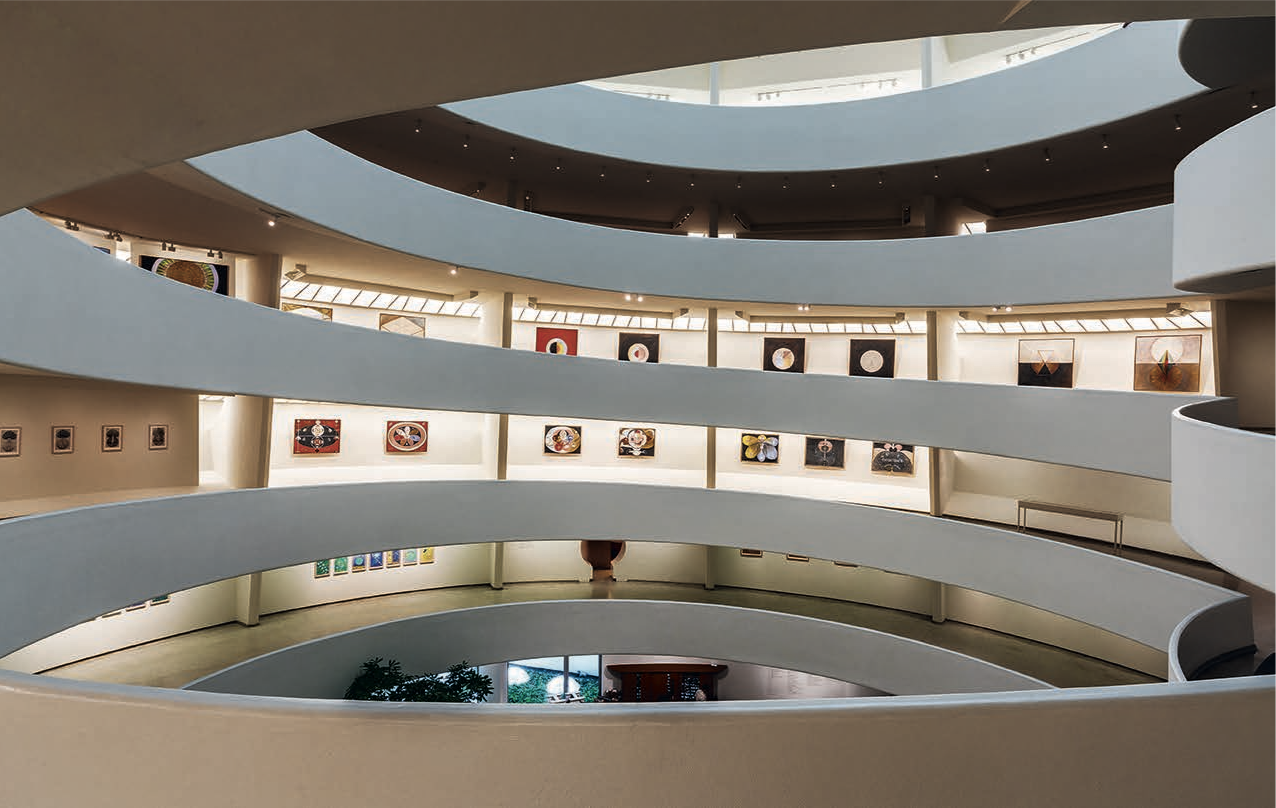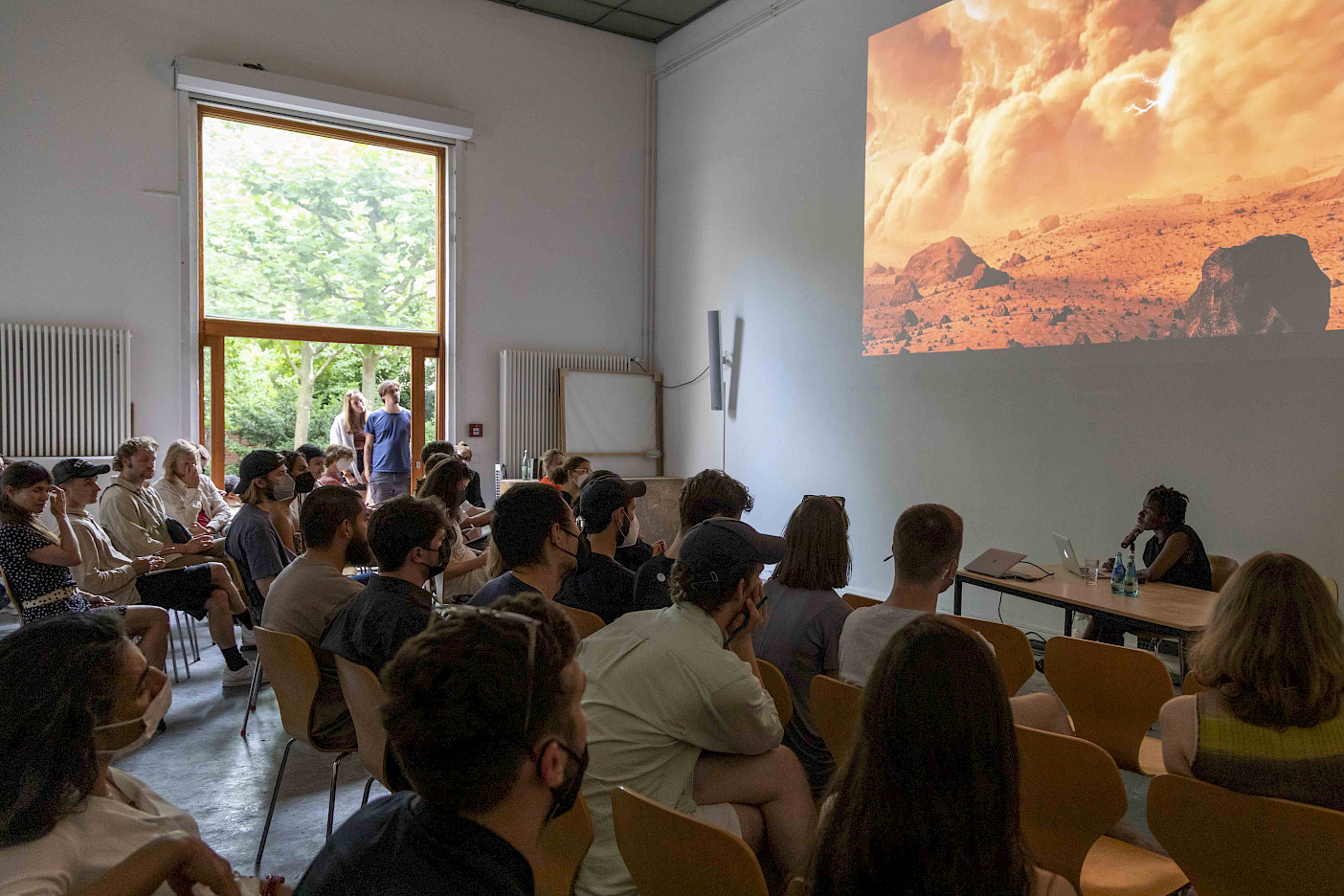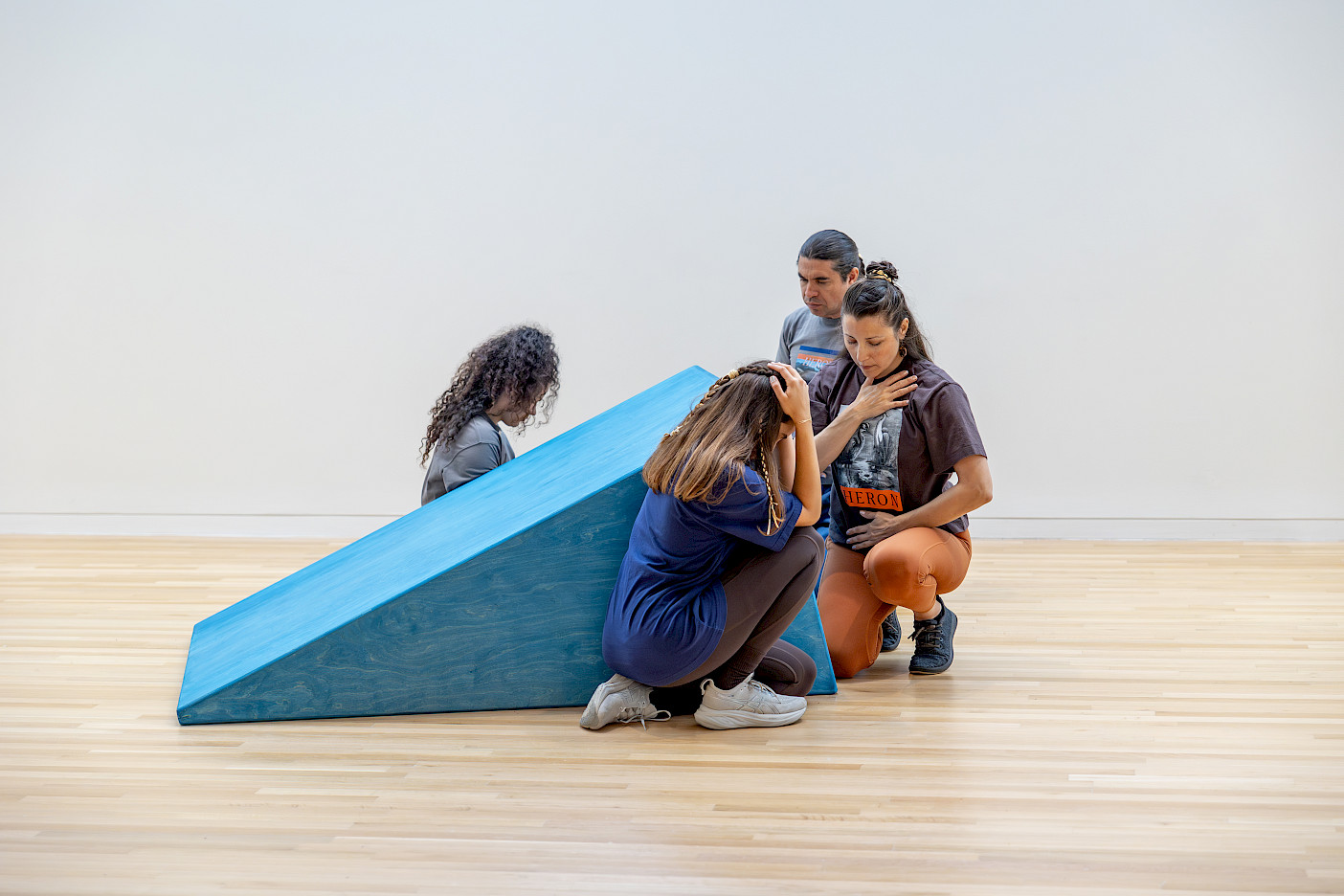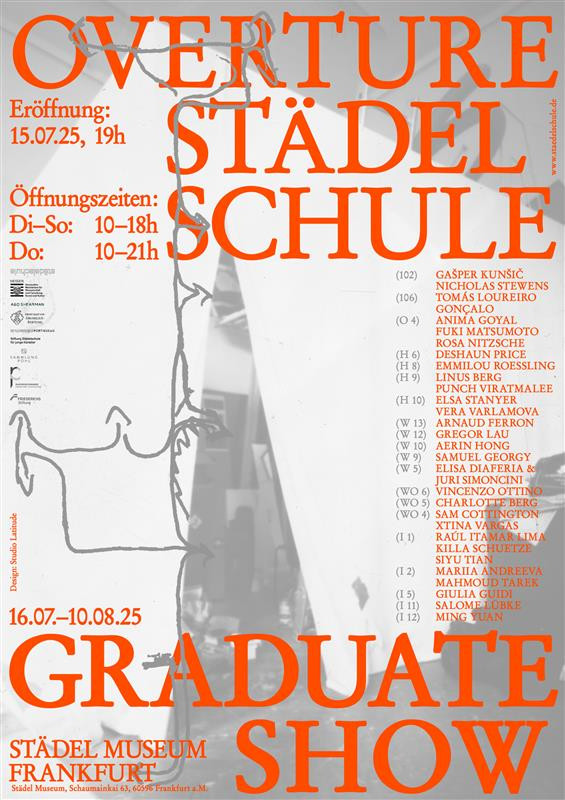Städel Museum, Schaumainkai 63, 60596 Frankfurt am Main
Öffnungszeiten: Di–So, 10–18 Uhr; Do, 10–21 Uhr
Eröffnung: Dienstag, 15. Juli 2025, 19–22 Uhr
Heute
Ongoing
Sommersemester 2025
Information, 22. April – 25. Juli 2025
Demnächst
Tanya Lukin Linklater: _structural_flex_
Vortrag, 8. Juli 2025, 19:00
Overture – Absolvent*innenausstellung
Ausstellung, 15. Juli – 10. August 2025, 19:00
Florence Jung: Doing nothing?
Vortrag, 24. Juni 2025, 19:00
Rabih Mroué: Shot/Counter Shot. Rethinking the Reverse
Vortrag, 17. Juni 2025, 19:00
Adir Jan & Emrah Gökmen: An den Ufern des Munzur, an den Ufern des Murat
Konzert, 12. Juni 2025, 20:00
Miloš Trakilović: Love Songs & War Machines
Vortrag, 10. Juni 2025, 19:00
Anna Roberta Goetz: 36. Bienal de São Paulo. Not All Travellers Walk Roads / Of Humanity as Practice
Vortrag, 3. Juni 2025, 19:00
Jimmy Robert
Vortrag, 27. Mai 2025, 19:00
Klein: No Degree, No Budget, No Problem
Vortrag (20.5.) Konzert (21.5.), 20. – 21. Mai 2025
Julian Irlinger: Reanimation and Reconstruction
Vortrag, 13. Mai 2025, 19:00
İmran Ayata & Bülent Kullukçu: Songs of Gastarbeiter
Music Lecture, 8. Mai 2025, 19:00
Enzo Camacho & Ami Lien: Langit Lupa (Heaven Earth)
Filmvorführung (5.5.) Vortrag (6.5.), 5. – 6. Mai 2025, 19:00
Helen Marten: Animal Hours
Vortrag, 29. April 2025, 19:00
Bewerbung: Masterstudiengang Curatorial Studies – Theorie – Geschichte – Kritik
Bewerbung, 10. April – 31. Mai 2025
Vorlesungsfreie Zeit Frühjahr 2025
Information, 14. Februar – 21. April 2025
Water Cooler Talks 2025
Veranstaltung, 8. – 9. Februar 2025
Rundgang 2025
Ausstellung, 7. – 9. Februar 2025, 10:00–20:00
Trisha Donnelly
Vortrag, 30. Januar 2025, 19:00
Kerstin Brätsch: Parasite Painting
Vortrag, 28. Januar 2025, 19:00
Emma Enderby: Curating in and out of Place
Vortrag, 14. Januar 2025, 19:00
Daniel Birnbaum: The Temple—The Extraordinary Legacy of Hilma af Klint

Hilma af Klint’s (1862-1944) paintings were intended to lead the viewer onto levels of awareness beyond those known from two-dimensional illusionism and three-dimensional reality, to allow her glimpses of another universe. She had plans for a spiralling architectural structure that would be built to house The Paintings for the Temple. Her work can today be seen in the light of Linda Nochlin’s 1971 essay ‘Why have there been no great women artists?’ and some of the answers to this question that she provides. Instead of only stressing the autonomous activity of a super-endowed individual, she explores the ‘total situation’ of art making. The work of art, says Nochlin, occurs in a social situation. Only within an institutional structure, determined by specific and definable institutions, be they art academies, systems of patronage, mythologies of the divine creator, or museums, can a ‘great’ work of art be appreciated as such. Posterity for Hilma af Klint does not only imply a new generation of viewers and artist. It implies institutions willing to question a canon in which she has no place.
Daniel Birnbaum (b.1963 in Stockholm/SE) is the director of Acute Art, a VR production company, as well as Professor of Philosophy at Städelschule. From 2010 until the summer of 2018 he was the director of the Moderna Museet Stockholm. Prior to this he held the position of rector of the Städelschule between 2000–2010. Next to his directing of the Städelschule and Portikus, Daniel Birnbaum has been curatorially involved in various biennials and projects in recent years. In 2016, he co-curated Hilma af Klint: Painting the Unseen at the Serpentine Galleries in London and Hilma af Klint: Possible Worlds in 2017 at the Pinacoteca in São Paulo in collaboration with the museum’s director Jochen Volz. Daniel Birnbaum joined the Hilma af Klint Foundation as an adjunct member of the board and special advisor for international programs. He is a contributing editor of Artforum and he has published numerous books and essays on philosophy and art, both in the framework of Städelschule and Portikus, as well as external engagements, including The Hospitality of Presence: Problems of Otherness in Husserl’s Phenomenology (1998), with Carsten Höller the book Production (2000) and Chronology (2005).
Der Vortrag findet in englischer Sprache statt.


